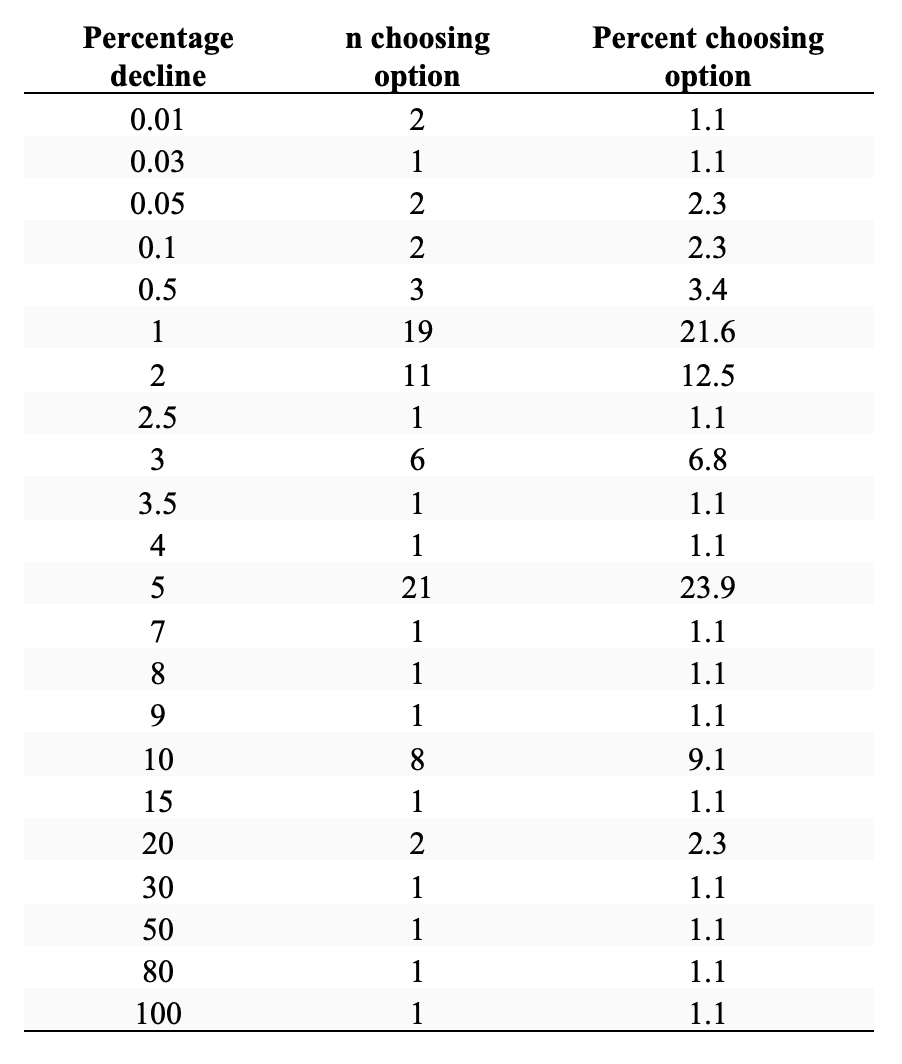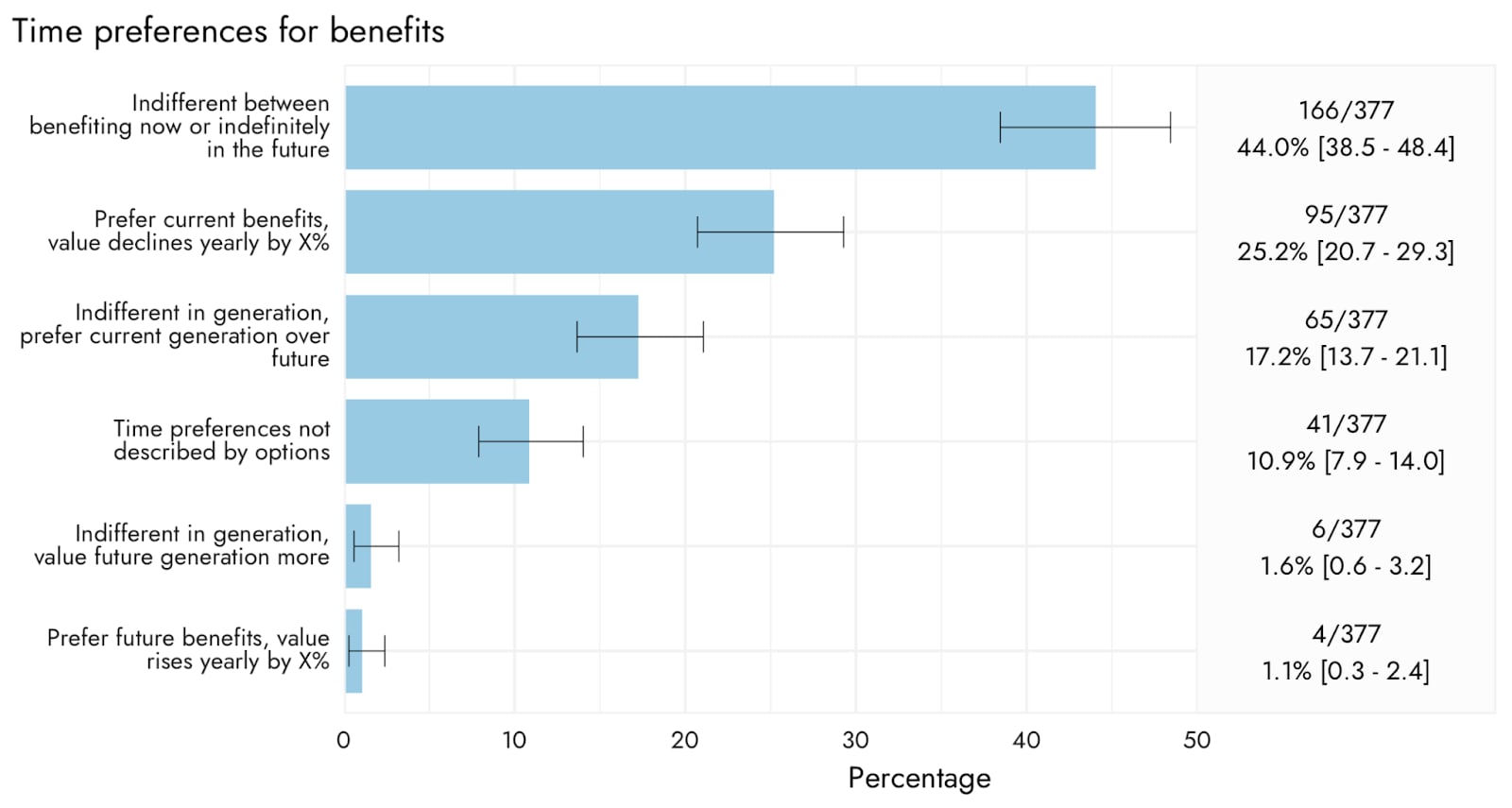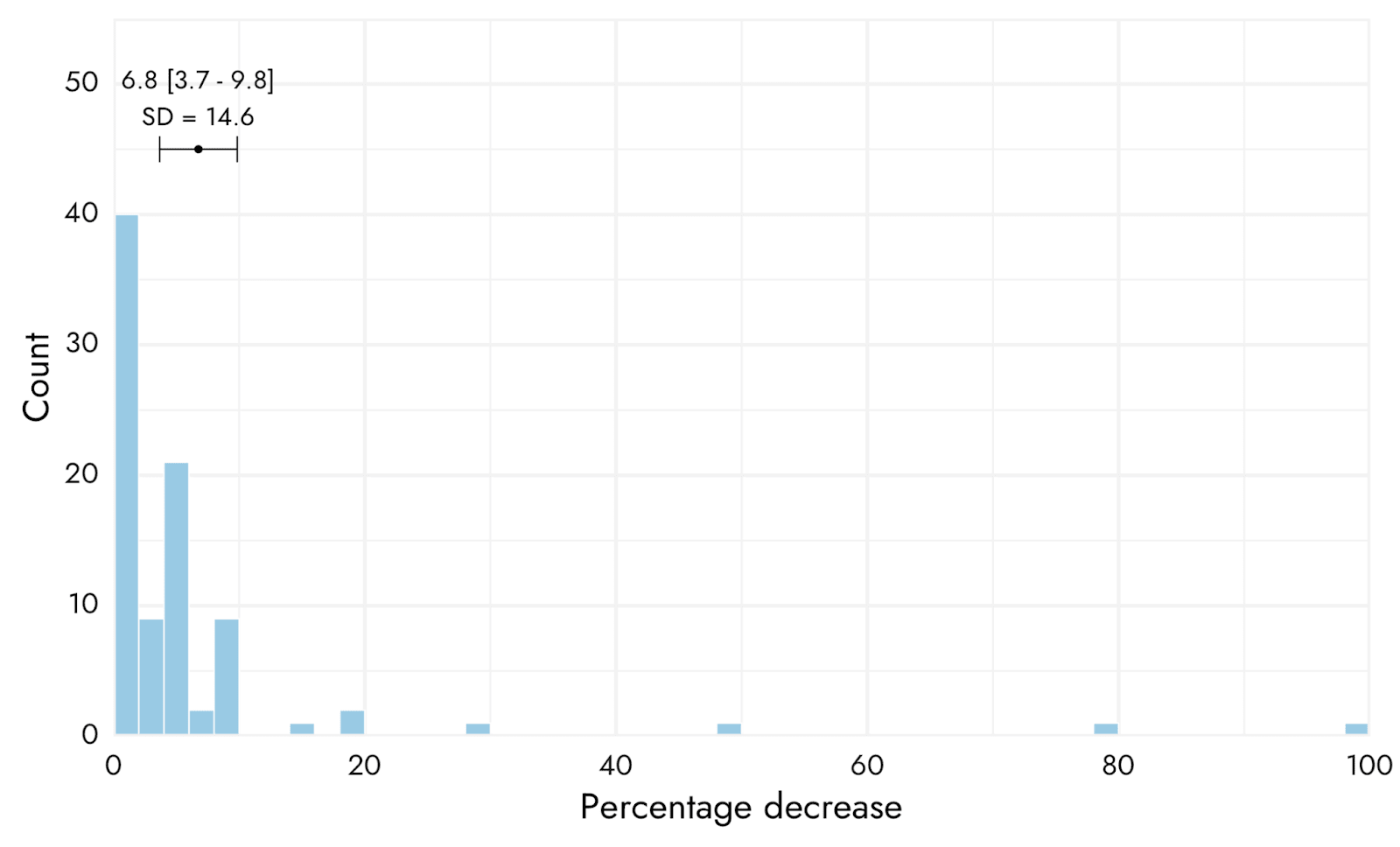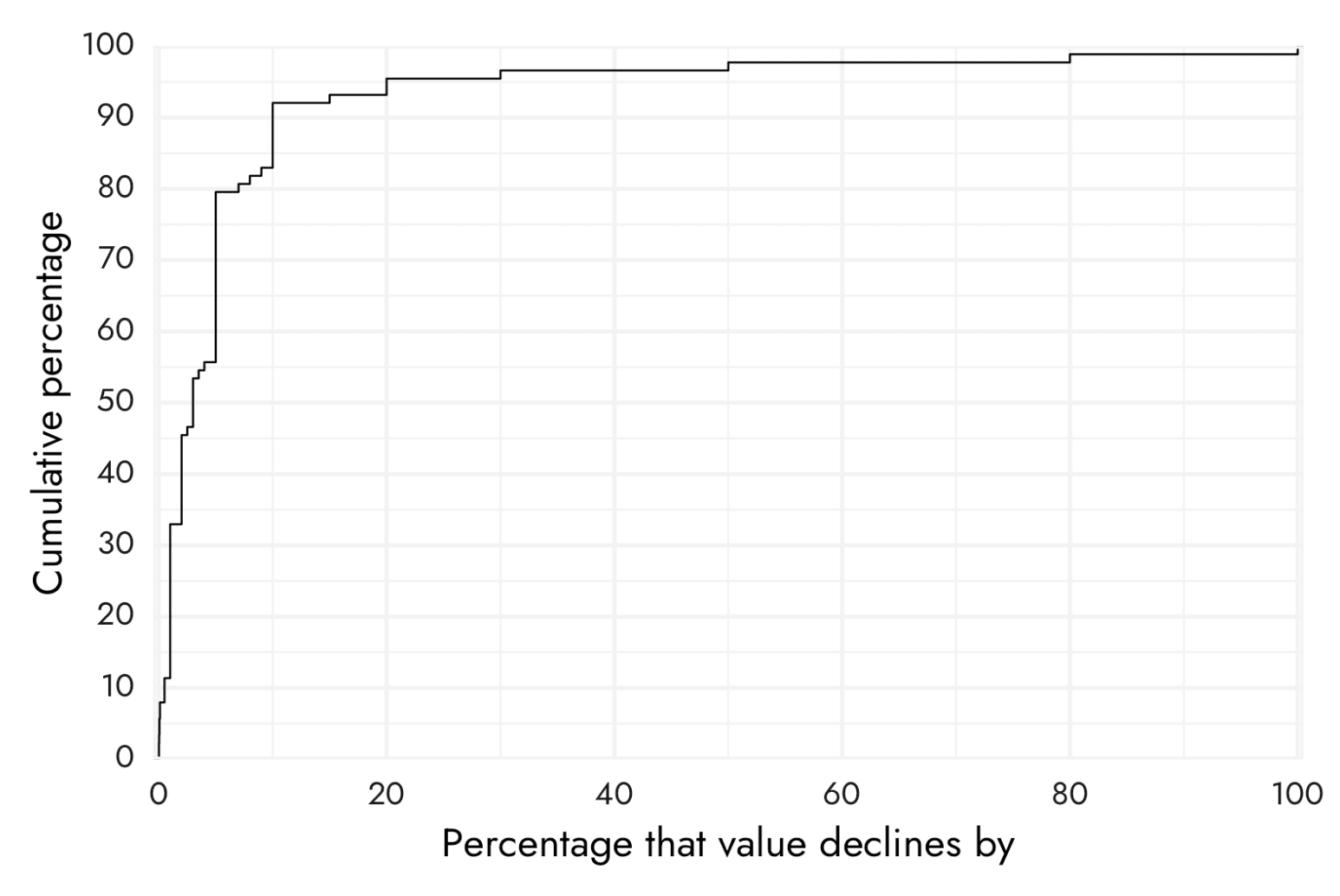As part of ongoing research into EA community attitudes and priorities, a supplemental EA community survey was fielded from December 2023 to January 2024. This survey included a number of questions requested by EA decision-makers and researchers. One such question concerned EA community attitudes regarding time preferences for impact. The question requested was:
Putting aside issues of tractability, what are your time preferences with respect to the altruistic impacts of your actions?
- I am at least roughly indifferent between benefiting someone today and benefiting someone to an equal extent indefinitely far in the future.
- I value benefiting someone today more than benefiting someone to an equal extent in the future, and the value I place on future benefits declines roughly exponentially per year by ___%.
- I value helping someone today less than helping someone to an equal extent in the future, and the value I place on future benefits rises roughly exponentially per year by ___%.
- I am at least roughly indifferent between current and future benefits among members of a given generation, but I value helping members of the current generation substantially more than members of future generations (holding the sizes, but not necessarily the identities, of future generations fixed).
- I am at least roughly indifferent between current and future benefits among members of a given generation, but I value helping members of the current generation substantially less than members of future generations (holding the sizes, but not necessarily the identities, of future generations fixed).
- My time preferences are not described by any of these.
In total, 377 respondents provided answers to this question.
The most endorsed attitude (44%) was to be roughly indifferent between benefiting someone today relative to indefinitely far in the future. This was followed by preferring to help current people, with a specified ‘decay’ of value into the future (endorsed by 25% of respondents). A further 17% reported being indifferent with respect to time when helping within a generation of people, but preferring helping the current generation of people more than future generations. Finally, 11% of respondents reported that none of the specified attitudes matched their preferences. All other views received less than 2% endorsement.
Within those who reported preferring to help people now, we received 88 responses that provided a specific percentage of decay per year. The two plots below show, firstly, the number of people giving different percentage values, and secondly, the cumulative probability of giving different percentages. Over 50% of these respondents had a value at or less than 5%, and 90% of people reported a percentage decline of 10% or less. However, there was substantial variation. A handful of people reported very high percentages such as 80% or 100%. The mean of the distribution was 6.8, with the single most endorsed percentage decline being 5% (n = 21), followed by 1% (n = 19).
Precise percentages given by each respondent are shown in the table below:

Only three people who selected the 'increasing' value into the future option provided percentages, and one of these selected 0, so we do not display values for that response option.
When interpreting the substantive meaning of these responses, it is important to remember that the question stipulated that responses should be ‘putting aside issues of tractability’. Respondents’ attitudes may differ when taking into account tractability. It should also be noted that the question was quite complex, and may have been challenging for respondents to answer.
Rethink Priorities is a think-and-do tank dedicated to informing decisions made by high-impact organizations and funders across various cause areas. We invite you to explore our research database and stay updated on new work by subscribing to our newsletter.





Thanks for running this survey.
Besides the question of tractability, there’s also a question of what “benefit” means in this context. We expect future generations to be richer, healthier, etc., so even the same “benefit” in nominal terms may be less valuable in utility terms.